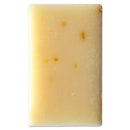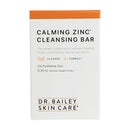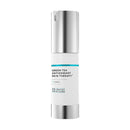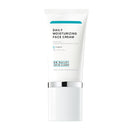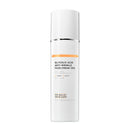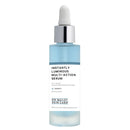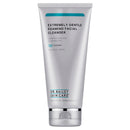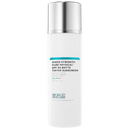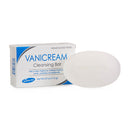What Is A Dermatologist?

Do you wonder, what is a dermatologist and how do they differ from general doctors, aestheticians and other people who claim expertise in fixing skin problems? Dermatologists are the ones with the most education and professional training of all "skin experts". This is important.
You're more likely to find the right solution for any skin problem if you start with the correct diagnosis. You are more likely to get the right diagnosis and treatment from a dermatologist because no one else has as much training, education and experience focused precisely on human skin.
Skin problems are not simple to diagnose
Skin problems often look similar to the untrained eye - red, scaly, dry, blistered, bumpy etc., and the best way to get the correct diagnosis is by seeing a Board Certified Dermatologist.
Dermatologists are the medical experts for skin problems.
Your skin only has so many different ways it can act up to tell you something is wrong.
The 'words' in your skin's 'vocabulary' can have subtle differences that are important for diagnosis. - Dermatologist Dr. Cynthia Bailey
For example,
- people often misinterpret the scale of seborrhea as 'dry skin', when, in fact, it's a rash (dermatitis).
- not every facial pustule is acne, a dermatologist may see them looking more consistent with a staph infection, a fungal or yeast infection, a rash like perioral dermatitis etc.
Your treatment will be different for each of these conditions.
If you want to get rid of a skin problem fast, there's no substitute for starting with the right diagnosis and that's not so easy with skin problems.
Making sense out of the subtle differences between skin problems takes training and experience, and a Board Certified Dermatologist has extensive training to do this for you.
What training do you need to become a dermatologist?
In the US, we dermatologists go to college for 4 years. We then go to medical school for 4 years just like all MD's.
After medical school we spend one year studying general medicine, surgery or pediatrics in an internship. After that, we study for at least 3 more years focusing exclusively on dermatology in a dermatology residency program.
How many years does it take to become a dermatologist?
If you count from kindergarten, it's 25 years of study in the US to become a dermatologist. If you count from high school graduation, it takes a minimum of 12 years of study to become a dermatologist. Most of us finish this process in our early 30s. That's when we can actually call ourselves a dermatologist and practice dermatology.
What is a dermatology residency?
A residency is where a physician, after graduating from medical school, develops expertise in a specialty or in general practice. A dermatology residency is focused exclusively on dermatology expertise.
During our dermatology residency we are taught and supervised by physicians who have already completed this training and are experts in dermatology themselves. We extensively study the skin; we often do laboratory or clinical research on it too.
We treat patients with skin problems, we look at their skin biopsies under the microscope. This teaches us to understand skin problems from the inside out. No other person claiming skin expertise does this - not even physicians why claim skin expertise.
Looking under the microscope at the skin biopsies of our patient's skin problems gives us a deep understanding of skin health and disease. Only dermatologists are trained in both clinical and microscopic skin analysis.
During our dermatology residency we teach other doctors and health care workers about dermatology. We also teach each other. We give talks on skin problems to other doctors and write papers on skin problems for medical journals. We present our research or complex patient cases to doctors at scientific meetings and put ourselves in front of the world's skin experts for questions and comments. We do this over and over again getting better and better at it.
Dermatologists have to take a long and difficult exam to become Board Certified in Dermatology
Completing a dermatology residency qualifies a physician to be called a Fellow of the American Academy of Dermatology. Most dermatologists however also sit for our long and difficult board exam. Passing the board exam proves that we are qualified to be considered a medical skin expert, called a Board Certified Dermatologist.
The bottom line about becoming a dermatologist
The training process from college student to Board Certified Dermatologist is a long process. I was 32 years old when I finished my formal education, passed my board exam and was able to enter dermatology practice as a Board Certified Dermatologist.
It's important to know that not every physician claiming to specialize in medical and surgical skin treatment has completed a dermatology residency and passed the dermatology board exam; they may not be Board Certified, or even a Fellow of the American Academy of Dermatology.
Any physician who completes medical school can treat skin problems and say that they practice dermatology.
The terminology is confusing and unfortunately patients can easily be misled. It is even common for nurses, nurse practitioners and physician assistants to appear to patients as though they are dermatologists.
To know if your 'dermatologist' actually has all of the training and credentials of a real dermatologist, you have to ask.
If you want to find a skin expert with the highest level of training, look for a Board Certified Dermatologist who is a Fellow of the American Academy of Dermatology. - Dermatologist Dr. Cynthia Bailey
Then, make sure you like your dermatologist's practice approach. There are as many different physician practice styles as there are people.
What makes a good dermatologist?
In my opinion, I think you should be sure your dermatologist,
- listens to you,
- is thorough in their examination of your skin,
- they explain your diagnosis and their treatment recommendations to you, and
- that you feel well taken care of by them and their office staff.

